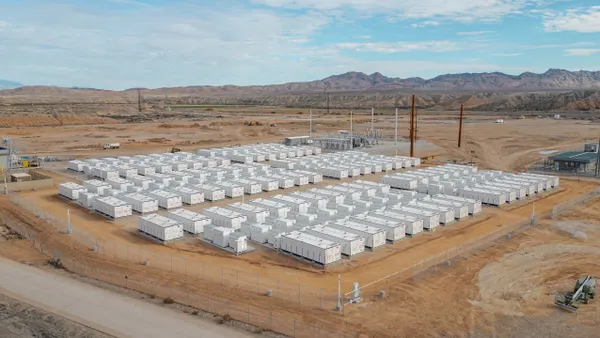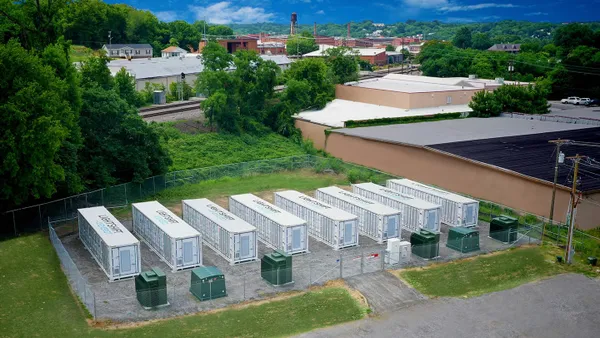Dive Brief:
- Researchers in Switzerland are working to develop a cheaper alternative to lithium-ion batteries, and have hit upon a combination of components they say is offers a similar energy density at a lower price, Hydrogen Fuel News reports.
- Published last month in the American Chemical Society's Chemistry of Materials, the research highlights a low-cost battery created using sodium and magnesium, which could help utility-scale storage become widespread at cheaper price points.
- Lithium-ion technology has largely dominated recent talk of renewables integration, but a cheaper option that performed similarly could accelerate the spread of storage options.
Dive Insight:
Research out of the Swiss Federal Laboratories for Materials Science and Technology could throw a wrench into all the excitment around lithium-ion batteries. The institute's Laboratory for Thin Films and Photovoltaics has been working on cheaper storage alternatives, and a recent study shows the results are encouraging.
According to the American Chemical Society, researchers started out with magnesium as the battery’s density anode material and paired it with pyrite, which is made of iron and sulfur, as the cathode. The electrically conducting components contained sodium and magnesium ions. "Testing showed that the resulting device’s energy density was close to that of lithium-ion batteries," ACS said.
And if "close" isn't impressive, ACS added that researchers believe the new type of storage "could get an additional two- to three-fold boost with further development of magnesium electrolytes."
The research abstract is highly technical, but contains this plain English prediction: "Fully based on Earth-abundant elements, hybrid Na–Mg batteries are highly promising for large-scale stationary energy storage."
ACS specifically mentioned Tesla's Powerwall home energy storage option, and noted its $3,000 price tag (potentially bigger when including installation) "put it out of reach for most customers."
Tesla's storage products are already under construction at the company's California facility, but manufacturing will switch over to the Gigafactory next year in Nevada. The company has already taken reservations for more than $1 billion of its Powerwall and Powerpack batteries.












